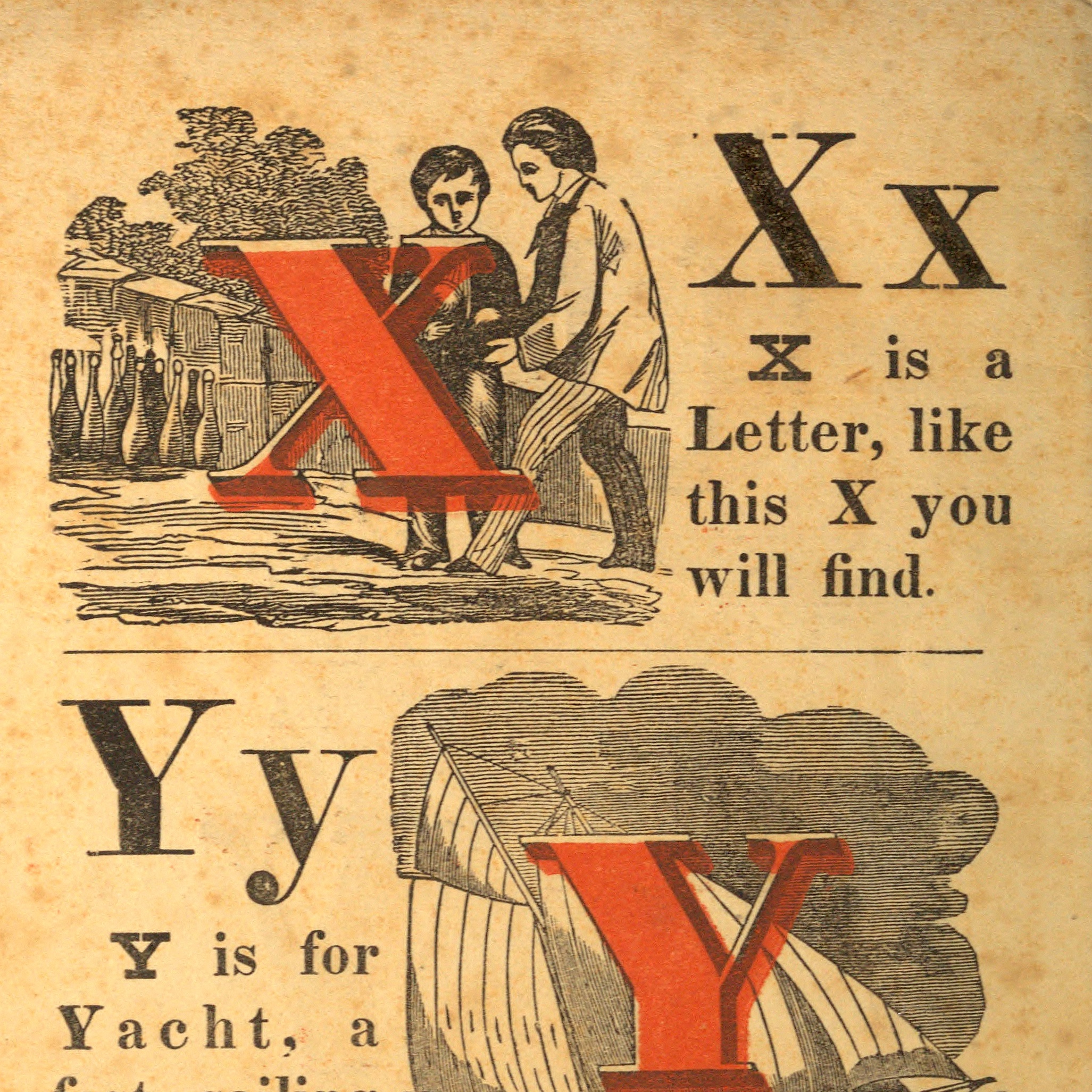 X doesn’t start much in modern English, limiting our alphabet poets to a poor choice between xylophone and X-ray. This is why English speaking toddlers know so much about internal medicine. To branch out a bit sometimes our abecedarists will pick a short word ending in or containing X, because here we have options like axe and fox, words whose spellings have not changed since the time of the Rune Poem. In Old English, X starts no words, nothing, and it ends only a very few. This posed a conundrum for the Rune Poem poet as the runes came before the poem, and one of them signified the letter X. This is one of the clues we have that the runes might have originated with the Etruscans: the Etruscan X looks identical to the Old English rune for X: ᛉ. X is in the mix, so they had to find a word to represent it. … More
X doesn’t start much in modern English, limiting our alphabet poets to a poor choice between xylophone and X-ray. This is why English speaking toddlers know so much about internal medicine. To branch out a bit sometimes our abecedarists will pick a short word ending in or containing X, because here we have options like axe and fox, words whose spellings have not changed since the time of the Rune Poem. In Old English, X starts no words, nothing, and it ends only a very few. This posed a conundrum for the Rune Poem poet as the runes came before the poem, and one of them signified the letter X. This is one of the clues we have that the runes might have originated with the Etruscans: the Etruscan X looks identical to the Old English rune for X: ᛉ. X is in the mix, so they had to find a word to represent it. … More
Tag Archives: The Eclectic Abecedarium


